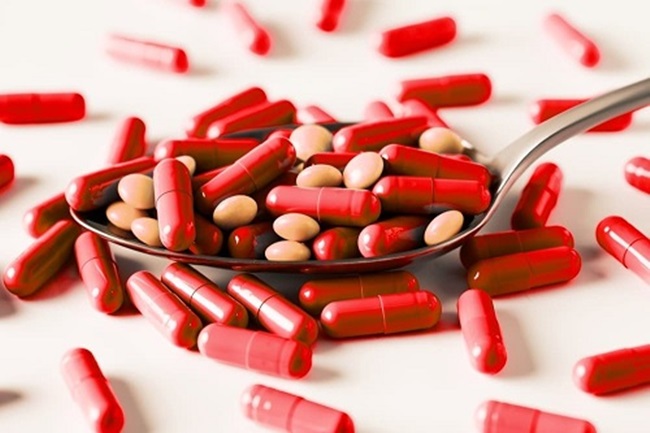Grapefruit and grapefruit juice are very good for health, because they provide many nutrients necessary for the body to develop. However, if the patient is taking medication to treat certain diseases, they should not eat grapefruit, because the ingredients in grapefruit can cause some unwanted drug interactions.
1. Grapefruit ingredients
Grapefruit, like grapefruit juice, provides many important substances for the body such as vitamin C , potassium , fiber and many other nutrients. However, when eating grapefruit and taking medication at the same time, grapefruit can interact with many types of drugs and lead to dangers to the patient’s health because of the ingredients in grapefruit.
First of all, it is necessary to mention the substance Furanocoumarin found in grapefruit as well as other fruits of the same family such as sour oranges. This substance can interact with drugs taken into the body and leave serious consequences for the patient’s health. Furanocoumarin is metabolized by the CYP3A4 enzyme in the small intestine into reactive intermediates that bind to certain active sites of this enzyme, thereby causing irreversible inactivation of the enzyme, thereby making the CYP3A4 enzyme unable to break down the drug in the body, causing the amount of drug in the blood to increase, causing more side effects. This enzyme only becomes active again once it is deactivated and then the drug is metabolized normally in the body. This chemical is present in grapefruit as well as other fruits, so eating about 1 grapefruit or drinking 200ml of grapefruit juice can increase the concentration of the drug in the blood throughout the body, causing clinical symptoms and unwanted effects.

Grapefruit, as well as grapefruit juice, provide many important nutrients for the body such as vitamin C, potassium, fiber and many other nutrients.
2. Eating grapefruit and taking medication
Because there are drug interactions when eating grapefruit and taking medication, if the patient is being treated with any of these medications, it is necessary to consult a doctor or pharmacist about whether the medication being used interacts with grapefruit or other fruits such as oranges or tangerines.
Patients should proactively eliminate grapefruit products from their daily diet, not just eat grapefruit far from the time of taking medication, because it is still impossible to prevent drug interactions from occurring in this case. Another method is that the patient should consult with the treating physician about switching to another medication that has equivalent treatment effectiveness and does not cause reactions when eating grapefruit while taking medication.
The problems caused by the chemicals in grapefruit mentioned above can cause abnormal drug metabolism, the drug may stay in the body too long or metabolize too quickly, causing the ingredients in the drug not to have enough time to exert their therapeutic effects.
Some prescription drugs that often interact when used with grapefruit are:
- Antibiotics
- Statins to lower cholesterol
- High blood pressure drugs
- Cardiovascular drugs
- Drugs to prevent organ rejection
- Anxiety drugs
- Seizure control drugs
- Motion sickness drugs
- Erectile dysfunction drugs
- Hormone replacement drugs
- Cough medicine
- Pain relievers

Antibiotics often interact when used with grapefruit.
Although eating grapefruit is very good for health because it provides a lot of vitamin C and potassium as well as other minerals and vitamins for the body, but besides the good nutrients, grapefruit also contains chemicals that affect the metabolism of drugs in the body, so experts have recommended that you should not eat grapefruit and take medicine together to minimize dangerous health risks.
It is best that before using any medicine, whether prescription or non-prescription, patients should consult with doctors and experts so that the use of medicine becomes effective and safe for their health.





